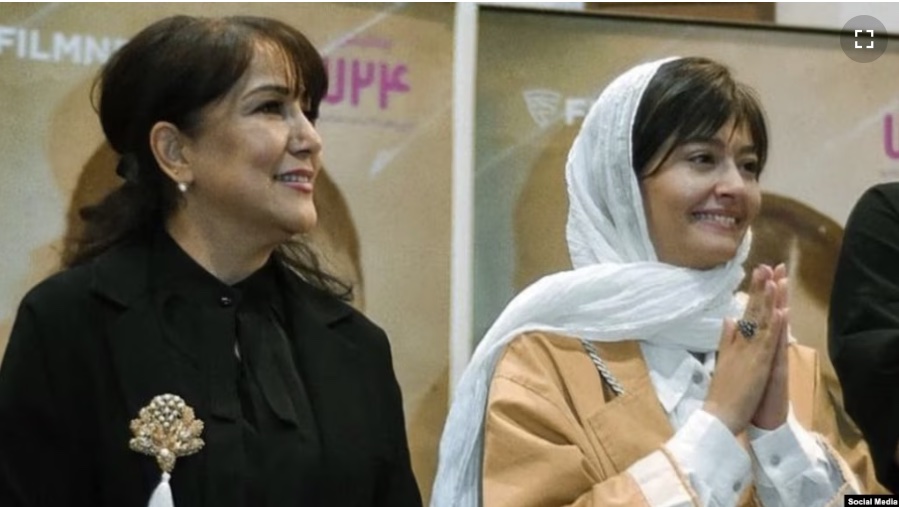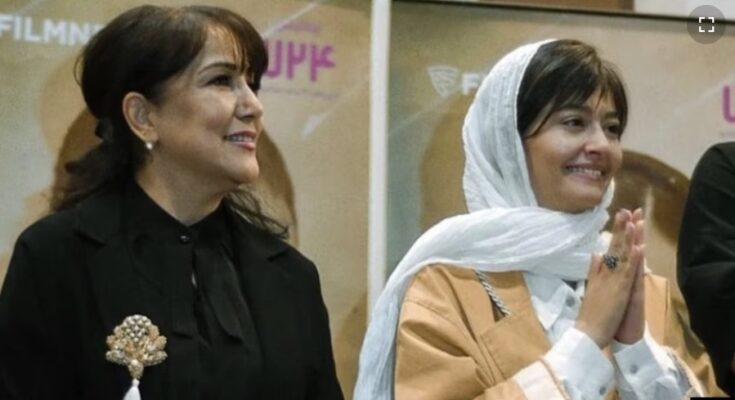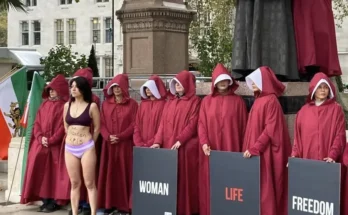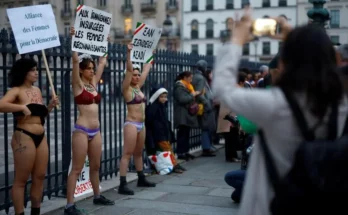Source: RadioFarda (RFE/RL)

The manager of an Iranian movie theatre has been dismissed after a female actress, Pantea Bahram, attended a public screening of a production without observing the mandatory hijab law.
The incident took place during the screening of the last episode of the Iranian series The Lion Skin at Tehran’s Lotus Cinema on April 19.
Bahram’s decision to forego the hijab garnered widespread support on social media, but the deputy for supervision and evaluation at the Cinema Organization criticized the movie theatre’s management for “failing to control the situation and not guiding the offending individual out of the cinema space.”
Consequently, it said, the manager was dismissed. It is not known if Bahram faced any consequences for her actions.
Acts of civil disobedience, such as appearing in public without a headscarf, have increased in Iran, where the law requires women and girls over the age of 9 to wear a head covering in public.
In recent weeks, officials have warned women to respect the hijab law and have threatened to punish violators. The authorities have also shut down businesses, restaurants, cafes, and in some cases, pharmacies due to the failure of owners or managers to observe Islamic laws and hijab rules.
Several Iranian cinematographers and prominent public figures have also been summoned by the police or arrested, including actress Katayoun Riahi and director Hamid Pourazari. Other celebrities, including actor Hamid Farrokhnejad, have been interrogated and have had their passports confiscated after showing support for the protests.
Since the death in September 2022 of 22-year-old Mahsa Amini while in police custody after allegedly breaking the hijab law, Iranians have flooded into the streets across the country to protest against a lack of rights, with women and schoolgirls putting up unprecedented shows of support in what is considered one of the biggest threats to the Islamic government since the 1979 revolution.
Many women have burned their hijabs in public as a show of defiance.
In response to the unrest, the authorities have launched a brutal crackdown on dissent, detaining thousands and handing down stiff sentences, including the death penalty, to protesters.
The authorities also have intensified efforts to enforce the hijab as more women flout the law by expanding punishments to businesses and workers who fail to enforce the law on their patrons.
The hijab became mandatory in Iran shortly after the 1979 revolution by order of Ayatollah Ruhollah Khomeini, the founder of the Islamic Republic.




